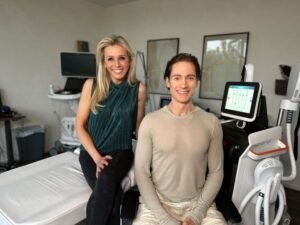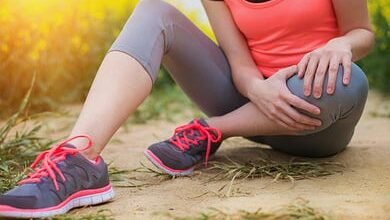“What is My Biological Age and How to Reduce It

Your biological age can reveal more about your health than the number on your birth certificate. While your chronological age ticks forward every year, your biological age reflects how well your body is holding up. The good news? You can influence it. By making targeted changes in your lifestyle, diet, and exercise routine, you can slow down, or even reverse, the aging process. Ready to discover how? Let’s dive into the steps you can take to reduce your biological age and feel younger from the inside out.
1. Understanding Biological Age
Definition and Importance
Biological age refers to the condition of your body’s cells, tissues, and organs compared to what is typical for your chronological age. Unlike your chronological age, which simply measures the number of years you’ve lived, biological age considers how your lifestyle, genetics, and environment have impacted your body’s health and functioning.
Biological age is a more accurate reflection of your overall health and longevity. Two people of the same chronological age might have very different biological ages depending on their habits and lifestyle choices. For instance, a person who exercises regularly eats a balanced diet, and manages stress effectively may have a biological age much younger than their actual years, while someone with unhealthy habits may show signs of premature aging.
Difference Between Biological and Chronological Age
Chronological age is straightforward—it’s the number of years that have passed since you were born. Biological age, however, is determined by a range of factors, including:
- Genetic Predisposition: Your genes play a role in how quickly or slowly your body ages. Some people may be genetically predisposed to age more slowly, while others may age faster.
- Lifestyle Choices: Diet, exercise, sleep, and stress management all significantly impact your biological age. Poor lifestyle choices can accelerate aging, while positive habits can help maintain a younger biological age.
- Environmental Factors: Exposure to pollution, toxins, and even chronic stress can contribute to an accelerated biological aging process.
Understanding the difference between these two types of age is crucial because it underscores the idea that aging isn’t just about the passage of time. It’s about the quality of your years. By focusing on reducing your biological age, you can enhance your quality of life, improve your health, and potentially increase your lifespan. This perspective shifts the focus from merely counting the years to actively managing and improving your overall well-being.
This section sets the stage for the rest of the article by defining key concepts and highlighting the significance of biological age. It prepares the reader to explore actionable strategies for reducing their biological age in the following sections.
2. Assessing Your Biological Age
Methods and Tools for Evaluation
Understanding your biological age is the first step toward improving it. While your chronological age is fixed, your biological age can be assessed and, more importantly, influenced. Here are some methods and tools that can help you evaluate your biological age:
- Blood Tests: Certain blood markers, such as levels of inflammation, cholesterol, glucose, and other biomarkers, can give a clear picture of your biological age. For example, high levels of inflammation are often associated with accelerated aging.
- DNA Methylation Tests: One of the most accurate ways to determine biological age is through DNA methylation tests, which analyze patterns of DNA methylation—a process that changes how your genes are expressed without altering the genetic code itself. These patterns can indicate how quickly your cells are aging.
- Telomere Length Measurement: Telomeres are the protective caps at the ends of your chromosomes. As you age, they naturally shorten, but lifestyle factors can accelerate this process. Measuring telomere length can provide insight into your cellular age and how your body is aging at the molecular level.
- Physical Fitness Tests: Your level of physical fitness is a strong indicator of your biological age. Tests that measure your cardiovascular endurance, muscle strength, flexibility, and balance can help assess how well your body is aging. For example, a high VO2 max (a measure of aerobic capacity) is often associated with a younger biological age.
- Skin Analysis: The condition of your skin can also reflect your biological age. Tools that measure skin elasticity, hydration, and the presence of wrinkles can provide clues about how well your body is aging.
- Online Biological Age Calculators: Various online tools and apps can estimate your biological age based on lifestyle factors, health data, and simple questionnaires. While not as accurate as clinical tests, these tools can give you a general idea of where you stand.
How to Compare Your Biological and Chronological Age
Once you have assessed your biological age, it’s time to compare it to your chronological age. Here’s how you can interpret the results:
- Biological Age Equals Chronological Age: If your biological age matches your chronological age, it suggests that your body is aging at a typical rate. However, there’s always room for improvement, and small changes in your lifestyle can further slow the aging process.
- Biological Age is Younger than Chronological Age: This is an excellent sign that your current lifestyle choices are positively impacting your health. Your body is aging more slowly than the average person of your chronological age, which can lead to a longer, healthier life.
- Biological Age is Older than Chronological Age: If your biological age is higher than your chronological age, it’s a wake-up call that your current lifestyle may be accelerating the aging process. Factors like poor diet, lack of exercise, high stress, or exposure to environmental toxins could be contributing to this discrepancy.
Understanding the gap between your biological and chronological ages allows you to take targeted actions to reduce that gap. By focusing on areas where you can improve—such as diet, exercise, or stress management—you can work toward a younger biological age, ultimately enhancing your overall health and longevity.
This section empowers readers with practical knowledge about assessing their biological age and understanding what it means about their chronological age. It sets the stage for actionable strategies in the subsequent sections to reduce biological age.
3. Exercise Strategies to Improve Biological Age
Balancing Weights and Cardio
Exercise is one of the most effective ways to lower your biological age. However, not all exercises are created equal. To optimize your workout routine for anti-aging, it’s crucial to balance strength training with cardiovascular exercises.
- Strength Training: As we age, we naturally lose muscle mass, a condition known as sarcopenia. Strength training helps counteract this by building and maintaining muscle mass, which is vital for metabolic health, bone density, and overall strength. Incorporating weights into your routine at least two to three times a week can significantly improve your biological age by enhancing muscle tone, boosting metabolism, and improving insulin sensitivity.
- Cardiovascular Exercise: Cardio is essential for heart health, endurance, and maintaining a healthy weight. It also improves circulation, which helps deliver oxygen and nutrients to your cells, promoting healthy aging. However, too much cardio, especially at high intensity, can increase oxidative stress and inflammation, potentially accelerating aging. Aim for moderate cardio sessions, such as brisk walking, swimming, or cycling, for 150 minutes per week, combined with shorter, more intense sessions like HIIT.
Incorporating Hormone-Boosting Workouts
Hormones play a critical role in the aging process, and certain exercises can naturally boost hormone levels that promote youthfulness, such as human growth hormone (HGH) and testosterone.
- Heavy Lifting: Engaging in compound movements like squats, deadlifts, and bench presses with heavy weights triggers the release of testosterone and HGH. These hormones are key to maintaining muscle mass, reducing fat, and improving overall vitality. Focus on low-rep, high-weight exercises to maximize hormone production.
- High-Intensity Interval Training (HIIT): HIIT involves alternating short bursts of intense activity with periods of rest or lower-intensity exercise. This type of training is highly effective for increasing HGH levels, improving cardiovascular health, and burning fat. A typical HIIT session might involve sprinting for 30 seconds followed by a minute of walking, repeated for 20 to 30 minutes.
The Role of HIIT and Endurance Training
Combining HIIT with endurance training provides a well-rounded approach to fitness that targets different aspects of aging.
- HIIT for Metabolic Health: As mentioned, HIIT is excellent for boosting metabolism and enhancing cardiovascular health. It’s also time-efficient, making it easier to fit into a busy schedule. HIIT improves insulin sensitivity, increases fat burning, and can even promote mitochondrial health, which is crucial for energy production at the cellular level.
- Endurance Training for Longevity: While HIIT focuses on short bursts of intense effort, endurance training involves sustained, moderate-intensity exercise over longer periods. This type of training is excellent for building cardiovascular endurance, improving heart health, and enhancing the efficiency of your body’s energy systems. Activities like long-distance running, cycling, or swimming help improve your aerobic capacity, which is linked to a lower biological age.
Flexibility and Control in Exercise Regimens
As we age, maintaining flexibility and balance becomes increasingly important. Incorporating exercises that enhance flexibility, stability, and control can help prevent injuries, improve posture, and maintain mobility.
- Stretching and Yoga: Regular stretching and yoga practices improve flexibility, reduce muscle stiffness, and enhance joint health. Yoga, in particular, also reduces stress, which can have a significant impact on your biological age by lowering cortisol levels—a hormone associated with accelerated aging.
- Balance and Core Strength: Exercises that focus on balance and core strength, such as Pilates or tai chi, are essential for maintaining stability and preventing falls, which can become a greater risk as we age. A strong core supports your spine, improves posture, and enhances overall movement efficiency.
Flexibility in Exercise Programming
It’s important to listen to your body and adjust your workout routine as needed. Overtraining can lead to burnout, injury, and increased stress, which can accelerate biological aging. Ensure your exercise program is adaptable, allowing for variations in intensity and type of activity based on how your body feels. This flexibility not only prevents injury but also ensures that you stay consistent, which is key to long-term success in reducing your biological age.
This section provides readers with a comprehensive guide to structuring their exercise routine to effectively reduce their biological age. It emphasizes the importance of a balanced approach, targeting strength, cardiovascular health, flexibility, and hormone optimization to achieve the best results for long-term health and vitality.
4. Nutrition for a Younger Biological Age
The Importance of Omega-3s
Omega-3 fatty acids are essential for maintaining cellular health and reducing inflammation, both of which are crucial for slowing down the aging process. These healthy fats, found in foods like fatty fish (salmon, mackerel, sardines), flaxseeds, and walnuts, play a vital role in protecting your heart, brain, and overall cellular function.
- Heart Health: Omega-3s help reduce triglyceride levels, lower blood pressure, and decrease the risk of heart disease, all of which contribute to a lower biological age. A healthy heart is central to longevity, and incorporating omega-3-rich foods into your diet is a simple yet powerful way to support cardiovascular health.
- Brain Health: Omega-3s are also crucial for brain function. They support cognitive health, reduce the risk of neurodegenerative diseases, and improve mood. By keeping your brain sharp and healthy, omega-3s can help you maintain a younger biological age.
Adopting Healthier Dietary Patterns
Diet plays a fundamental role in determining your biological age. Adopting a diet rich in whole, nutrient-dense foods while minimizing processed foods, sugar, and unhealthy fats can make a significant difference in how your body ages.
- The Mediterranean Diet: This diet, inspired by the eating patterns of people living in Mediterranean regions, is one of the most effective for promoting longevity. It emphasizes fruits, vegetables, whole grains, legumes, nuts, seeds, and healthy fats like olive oil. The Mediterranean diet is rich in antioxidants, fiber, and healthy fats, all of which contribute to lower inflammation, better heart health, and a reduced risk of chronic diseases, helping to slow biological aging.
- Plant-Based Eating: Incorporating more plant-based foods into your diet can reduce oxidative stress and inflammation, two key drivers of aging. A plant-based diet is high in fiber, vitamins, minerals, and phytonutrients, which support overall health and longevity. While you don’t have to go completely vegan or vegetarian, increasing your intake of plant-based foods can have significant anti-aging benefits.
Spices and Gut Health
Spices are more than just flavor enhancers; they are potent sources of antioxidants and anti-inflammatory compounds that can help reduce your biological age.
- Turmeric: Known for its powerful anti-inflammatory and antioxidant properties, turmeric contains curcumin, a compound that has been shown to protect against cellular damage and support brain and heart health. Incorporating turmeric into your diet can help combat the effects of aging at a cellular level.
- Cinnamon: Cinnamon helps regulate blood sugar levels, reducing the risk of insulin resistance and type 2 diabetes, both of which can accelerate aging. It also has antioxidant properties that help protect your cells from damage.
- Ginger: Ginger aids digestion, reduces inflammation, and boosts immune function, all of which contribute to a lower biological age. Its anti-inflammatory properties are particularly beneficial for reducing chronic inflammation, a major contributor to aging.
- **Gut Health
Gut Health and Its Impact on Biological Age
Your gut health is a critical factor in determining your biological age. The gut microbiome—the diverse community of bacteria and other microorganisms living in your digestive tract—plays a key role in regulating your immune system, metabolism, and even mental health.
- Probiotics and Prebiotics: Probiotics are beneficial bacteria that can help maintain a healthy balance in your gut microbiome. Foods like yogurt, kefir, sauerkraut, and kimchi are rich in probiotics. Prebiotics, found in foods like garlic, onions, bananas, and oats, are non-digestible fibers that feed these beneficial bacteria. A balanced gut microbiome can reduce inflammation, improve digestion, and enhance nutrient absorption, all of which contribute to a lower biological age.
- Gut-Brain Connection: The gut and brain are closely connected through the gut-brain axis, a communication network that links your digestive system with your central nervous system. A healthy gut supports mental well-being and cognitive function, while an unhealthy gut can lead to issues like anxiety, depression, and cognitive decline. By nurturing your gut health, you can positively influence your overall health and slow down the aging process.
Antioxidants and Their Anti-Aging Benefits
Antioxidants are compounds that protect your cells from oxidative stress, which is caused by free radicals—unstable molecules that can damage cells and accelerate aging. Including antioxidant-rich foods in your diet is a powerful way to combat oxidative stress and reduce your biological age.
- Fruits and Vegetables: Colorful fruits and vegetables like berries, leafy greens, and cruciferous vegetables are packed with antioxidants such as vitamin C, vitamin E, and beta-carotene. These antioxidants help neutralize free radicals, reduce inflammation, and protect your cells from damage.
- Green Tea: Green tea is rich in catechins, a type of antioxidant that has been shown to reduce the risk of chronic diseases and support weight management. Drinking green tea regularly can help protect your cells from oxidative damage and promote longevity.
- Dark Chocolate: Dark chocolate with a high cocoa content (70% or more) is another excellent source of antioxidants, particularly flavonoids. These compounds have been shown to improve heart health, enhance brain function, and reduce the risk of chronic diseases, all of which contribute to a younger biological age.
Practical Tips for Implementing Nutritional Changes
- Plan Your Meals: Incorporate a variety of nutrient-dense foods into your daily meals. Focus on whole foods, including plenty of fruits, vegetables, whole grains, lean proteins, and healthy fats.
- Stay Hydrated: Proper hydration is essential for maintaining cellular health and reducing the appearance of aging. Aim to drink plenty of water throughout the day, and consider adding hydrating foods like cucumbers and watermelon to your diet.
- Minimize Processed Foods: Processed foods are often high in unhealthy fats, sugars, and additives that can increase inflammation and accelerate aging. Reducing your intake of processed foods and opting for fresh, whole foods will have a positive impact on your biological age.
- Mindful Eating: Pay attention to portion sizes and eat mindfully to support digestion and nutrient absorption. Eating slowly and savoring your food can also help reduce stress, which is beneficial for lowering your biological age.

This section provides readers with actionable dietary strategies to reduce their biological age. By focusing on the importance of specific nutrients, healthy dietary patterns, and the critical role of gut health, the content equips readers with the knowledge they need to make impactful changes to their diet that support longevity and overall well-being.
5. Lifestyle Changes to Lower Biological Age
Prioritizing Sleep for Longevity
Sleep is one of the most powerful tools for reducing your biological age. Quality sleep allows your body to repair and regenerate, directly impacting your physical and mental health.
- The Role of Sleep in Aging: During deep sleep, your body undergoes critical processes like cellular repair, detoxification, and hormone regulation. Growth hormone, which is essential for tissue repair and muscle growth, is primarily released during sleep. Consistently getting 7-9 hours of quality sleep per night can improve cognitive function, boost immune health, and reduce inflammation, all of which contribute to a younger biological age.
- Improving Sleep Quality: To enhance sleep quality, establish a regular sleep schedule by going to bed and waking up at the same time every day. Create a sleep-friendly environment by keeping your bedroom cool, dark, and quiet. Reducing screen time before bed and avoiding caffeine and heavy meals in the evening can also promote better sleep.
Cognitive Stimulation and Learning
Keeping your brain active and engaged is crucial for maintaining a younger biological age. Cognitive stimulation through learning and mental challenges helps preserve brain health and can even lead to neurogenesis, the formation of new neurons.
- The Benefits of Lifelong Learning: Engaging in new and challenging activities stimulates different areas of the brain, improving memory, cognitive flexibility, and problem-solving skills. Whether it’s learning a new language, picking up a musical instrument, or solving puzzles, these activities help keep your brain sharp and resilient to age-related decline.
- Social Connections and Brain Health: Social interactions also play a vital role in cognitive health. Regularly engaging in social activities, whether in person or virtually, helps reduce stress, improve mood, and keep the brain active. Maintaining strong social connections has been linked to lower risks of dementia and cognitive decline, effectively reducing your biological age.
Effective Stress Management Techniques
Chronic stress is a significant contributor to accelerated aging. When your body is constantly in a state of stress, it produces high levels of cortisol, a hormone that, when elevated over time, can lead to various health problems, including high blood pressure, weight gain, and weakened immune function.
- The Impact of Stress on Aging: Prolonged stress can shorten telomeres, the protective caps on the ends of chromosomes that are associated with cellular aging. Shorter telomeres are linked to a higher biological age and an increased risk of age-related diseases. Managing stress effectively is therefore essential for maintaining a younger biological age.
- Mindfulness and Meditation: Mindfulness practices, such as meditation, deep breathing exercises, and yoga, have been shown to reduce stress, lower cortisol levels, and improve overall well-being. Regular mindfulness practice can help you stay calm and centered, reducing the impact of stress on your body.
- Physical Activity: Exercise is not only good for your body but also for your mind. Physical activity increases the production of endorphins, the body’s natural mood lifters, and can help you manage stress more effectively. Even short, regular bouts of exercise, like walking or stretching, can have a significant impact on stress levels.
- Time Management and Relaxation: Learning to manage your time effectively and setting aside time for relaxation can help reduce stress. Incorporate activities that you enjoy and that help you unwind, such as reading, spending time in nature, or practicing a hobby.
Developing Healthy Habits for Long-Term Success
Implementing lifestyle changes to reduce your biological age requires consistency and dedication. Here’s how to develop and maintain healthy habits for the long term:
- Set Realistic Goals: Start with small, achievable goals that can easily be integrated into your daily routine. Gradual changes are more sustainable and can lead to lasting improvements in your biological age.
- Create a Support System: Surround yourself with supportive friends and family who encourage your healthy lifestyle choices. Having a support system can help keep you motivated and accountable.
- Track Your Progress: Regularly monitor your progress by keeping a journal or using apps that track your sleep, stress levels, physical activity, and diet. Seeing your progress over time can be a powerful motivator to continue your healthy habits.
- Stay Flexible: Life can be unpredictable, and it’s important to stay flexible and adaptable in your approach to health. If you miss a workout or have a poor night’s sleep, don’t get discouraged. Focus on getting back on track as soon as possible.
The Importance of Consistency
Consistency is key when it comes to making lifestyle changes that lower your biological age. The benefits of these changes accumulate over time, leading to a healthier, more vibrant life. By prioritizing sleep, engaging in lifelong learning, managing stress, and cultivating healthy habits, you can effectively reduce your biological age and enhance your overall quality of life.
This section provides a comprehensive guide to lifestyle changes that can significantly reduce biological age. It emphasizes the importance of sleep, cognitive stimulation, stress management, and the development of healthy habits, offering practical tips and insights to help readers implement and maintain these changes for long-term success.
6. Monitoring and Tracking Biological Age Progress
Understanding the Importance of Regular Monitoring
Reducing your biological age requires consistent effort, and monitoring your progress is crucial to ensure that the changes you’re making are effective. Regular tracking allows you to see how your lifestyle adjustments are impacting your health and helps you stay motivated by providing tangible evidence of your improvements.
- Why Track Biological Age? Biological age is a more accurate reflection of your health than chronological age, as it accounts for the condition of your cells, tissues, and organs. Monitoring this metric allows you to understand how well your body is aging and identify areas where you might need to make further adjustments.
- Benefits of Regular Monitoring: Regularly checking your biological age helps you stay on track with your health goals, make informed decisions about your lifestyle, and adjust your habits based on what works best for your body. It also provides early warnings about potential health issues, enabling you to take preventive measures before problems arise.
Tools and Methods for Measuring Biological Age
There are various tools and methods available for measuring biological age, ranging from at-home tests to professional assessments. Understanding these options can help you choose the best approach for your needs.
- Epigenetic Testing: One of the most advanced methods for determining biological age is epigenetic testing, which analyzes the patterns of DNA methylation—a process that regulates gene expression. Companies like MyDNAge and TruDiagnostic offer epigenetic tests that provide a highly accurate measure of biological age by examining these methylation patterns in your DNA.
- Telomere Length Testing: Telomeres are protective caps at the ends of chromosomes that shorten with age. Measuring the length of your telomeres can indicate your cellular aging. Shorter telomeres are associated with a higher biological age and an increased risk of age-related diseases. Companies such as Telomere Diagnostics offer tests to measure telomere length.
- Blood Biomarker Analysis: Certain biomarkers in your blood, such as glucose, cholesterol, and inflammatory markers like C-reactive protein (CRP), can provide insights into your biological age. Regular blood tests can help track these markers and offer clues about how well your body is aging. Some services provide comprehensive biomarker analysis tailored to assessing biological age.
- Wearable Technology: Wearable devices like smartwatches and fitness trackers can provide ongoing data about your physical activity, heart rate, sleep patterns, and stress levels. While not a direct measure of biological age, these devices offer valuable insights into daily habits that influence aging, allowing you to adjust your lifestyle in real-time.
Interpreting Results and Making Adjustments
Once you’ve gathered data on your biological age, it’s essential to understand how to interpret the results and make necessary adjustments to your lifestyle.
- Understanding Your Results: When you receive your biological age assessment, compare it to your chronological age. If your biological age is higher, this indicates that your body may be aging faster than expected, and further lifestyle changes may be necessary. If it’s lower, it suggests that your efforts are working, and you’re effectively slowing down the aging process.
- Identifying Areas for Improvement: Review the factors contributing to your biological age—such as diet, exercise, sleep, and stress—and identify areas where you could improve. For example, if your biomarker analysis shows elevated inflammation, you might focus on incorporating more anti-inflammatory foods into your diet or increasing your physical activity.
- Making Informed Decisions: Use the insights from your biological age tests to make informed decisions about your health. Whether it’s adjusting your exercise routine, changing your diet, or improving your sleep habits, having concrete data allows you to tailor your approach for maximum effectiveness.
Tracking Progress Over Time
Monitoring your biological age isn’t a one-time event; it’s an ongoing process that should be integrated into your health routine. Regular tracking helps you stay on course and make continuous improvements.
- Set Regular Checkpoints: Depending on the method of measurement you choose, set regular intervals for testing—whether quarterly, biannually, or annually. Consistent tracking over time provides a clear picture of your progress and helps you identify trends that might require attention.
- Adjusting Your Plan: As you track your progress, be open to adjusting your lifestyle plan based on the results. If your biological age isn’t decreasing as expected, consider experimenting with different strategies, such as altering your exercise routine or trying new dietary approaches.
- Celebrating Milestones: When you see a decrease in your biological age, take time to celebrate your success. Recognizing these milestones can provide a psychological boost and reinforce your commitment to maintaining a healthy lifestyle.
Working with Health Professionals
While self-monitoring is valuable, working with health professionals can enhance your ability to accurately track and reduce your biological age.
- Consulting with a Specialist: Consider consulting with a healthcare provider, such as a functional medicine doctor or a longevity specialist, who can help interpret your results and create a personalized plan to reduce your biological age. These professionals can provide expert guidance and access to advanced testing methods.
- Regular Health Check-Ups: Regular check-ups with your primary care physician are essential for maintaining overall health and detecting potential issues early. These appointments can complement your biological age tracking by ensuring that you’re on the right path and addressing any emerging health concerns.
Final Thoughts on Monitoring Biological Age
Monitoring and tracking your biological age is a powerful tool in your journey toward a longer, healthier life. By understanding and utilizing the available tools, regularly assessing your progress, and making informed adjustments, you can effectively manage your biological age and continue to improve your overall health and well-being.
This section offers a detailed guide on the importance of monitoring biological age, the tools and methods available, and how to interpret and act on the results. It empowers readers to take control of their aging process through regular tracking and informed decision-making, ensuring they can make meaningful changes that contribute to a younger biological age and a healthier life.
Conclusion
Achieving a younger biological age is a holistic endeavor that requires dedication to exercise, nutrition, lifestyle changes, and regular monitoring. By embracing a balanced exercise regimen, nourishing your body with age-defying nutrients, adopting healthy habits, and actively tracking your progress, you can significantly enhance your well-being and slow the aging process. Remember, reducing your biological age is not just about adding years to your life but about adding life to your years. Commit to these strategies with patience and consistency, and you’ll pave the way to a healthier, more vibrant future.



